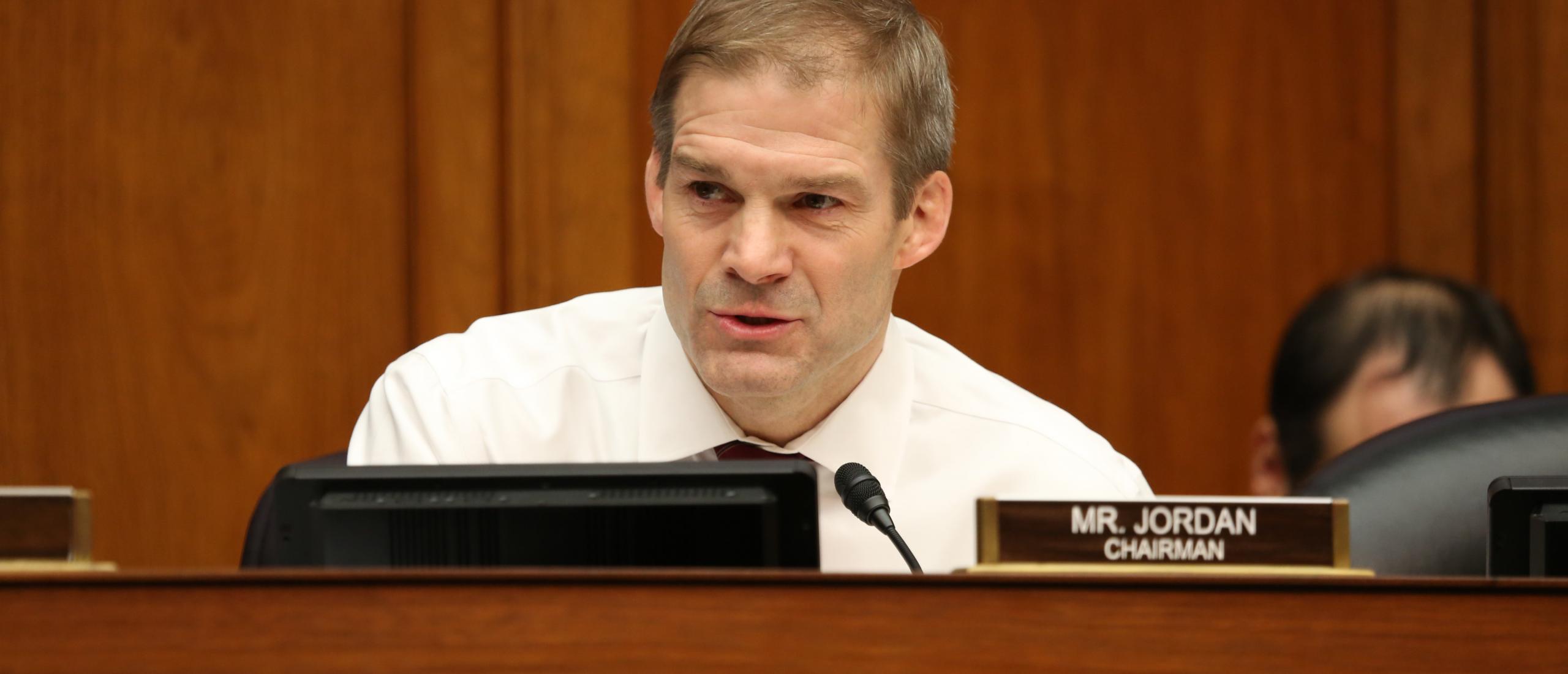And is it good?
Don’t Defund the (Antitrust) Police

Big Tech needs big oversight.
As the House gets ready to vote on a bipartisan package of antitrust bills that would target Big Tech, Congressman Jim Jordan—who would set the antitrust agenda if the GOP wins the House this November—slammed his foot on the brakes. “Do you think,” he asked, “we should give the Biden DOJ and FTC more money?” This package, in fact, does not give them more money, but given Jordan’s emphasis, and his fiscally conservative bent, one has to wonder if he plans to defund the (antitrust) police.
Jordan has been an ardent critic of Federal Trade Commission Chair Lina Khan, describing her as a woke, far-left radical. These criticisms are fair and are shared by other Republicans. During a Senate oversight hearing, Senator Grassley—who previously voted to confirm Khan—decried the agency’s “low morale, management and partisanship problems” and its “push for radical antitrust policies.”
Tweeting about how Lina Khan is evil, however, is not the same as setting a robust antitrust agenda. And while Republican senators Lee, Cotton, and Grassley have been critical of Khan, they have also thrown their support behind the antitrust package; if it passes the House, it can easily pass the Senate and become law.
While GOP views on antitrust have evolved, one thing has remained constant: “antitrust enforcement is law enforcement.” You can’t provide “legal amnesty” to Big Tech companies that flout antitrust laws. Defunding the antitrust police will have the same result as defunding the municipal police: enabling bad actors to harm the public.
Nonetheless, given the increased politicization of the FTC—and the broader politicization of federal law enforcement—you shouldn’t give antitrust enforcers a blank check. While an earlier version of this package did assign $418 million to the FTC, the latest version removed that appropriation in order to win over GOP support. As Lee, Cotton, and Grassley noted, “Importantly, these bills improve antitrust enforcement without appropriating any more funds to President Biden’s out-of-control FTC.”
In an ideal world, you would find ways to both increase funding to law enforcement while also establishing guardrails on that funding. While the FBI, for example, needs more resources to investigate child sexual abuse, they also need safeguards that prevent the agency from redirecting that funding to pursue political investigations—an issue which is not a hypothetical problem. But whether it’s the FBI or FTC, those guardrails can’t be built overnight, so what can be done now to improve antitrust enforcement?
Big Tech, not taxpayers or small and mid-sized businesses, must foot more of the bill for antitrust enforcement. Title I of the antitrust package adjusts the fees for mergers, charging more for transactions over one billion dollars, while also charging less for mergers under that threshold. Moreover, these fee hikes would not give more money to the FTC and DOJ; instead, they would offset taxpayer funding of these agencies. The nonpartisan Congressional Budget Office estimates that these “discretionary offsetting collections” would reduce federal spending by $1.4 billion dollars.
The FTC and DOJ must be diverted from fake problems to real problems. Title II of the antitrust package does exactly that. Especially given the willingness of Big Tech to capitulate to China, both the FTC and DOJ need to focus on foreign influence from, for instance, the Chinese Communist Party when it comes to ruling on mergers. Here, Title II would amend the premerger notification process, requiring companies to disclose if they received “a subsidy from a foreign entity of concern.”
Finally, if you don’t want to empower the FTC and DOJ, then empower the states instead. When the federal government files an antitrust lawsuit, it picks a venue for that lawsuit. However, state governments—which already have to pool resources to fund antitrust lawsuits against Big Tech—don’t have this same privilege. Before they can even debate the merits of their lawsuit, Big Tech will make them debate where they should have a debate, burning time and money. Title III would let states choose their own venue.
Voters are angry at Big Tech, but they are also asking legislators, “What are you going to do about it?” Jim Jordan and Tucker Carlson may share the same talking points on Big Tech, but as Tucker himself once pointed out when Jordan was on his show, his job as a talk show host is to talk; Jordan’s job as a legislator is to legislate.
The American Mind presents a range of perspectives. Views are writers’ own and do not necessarily represent those of The Claremont Institute.
The American Mind is a publication of the Claremont Institute, a non-profit 501(c)(3) organization, dedicated to restoring the principles of the American Founding to their rightful, preeminent authority in our national life. Interested in supporting our work? Gifts to the Claremont Institute are tax-deductible.
We have a duty to wield federal power against Big Tech.
Start with online speech coalition-building.



